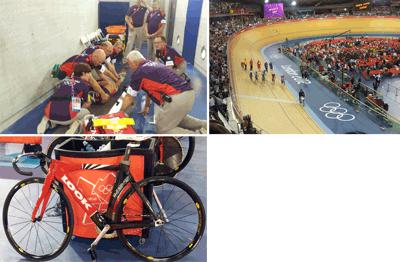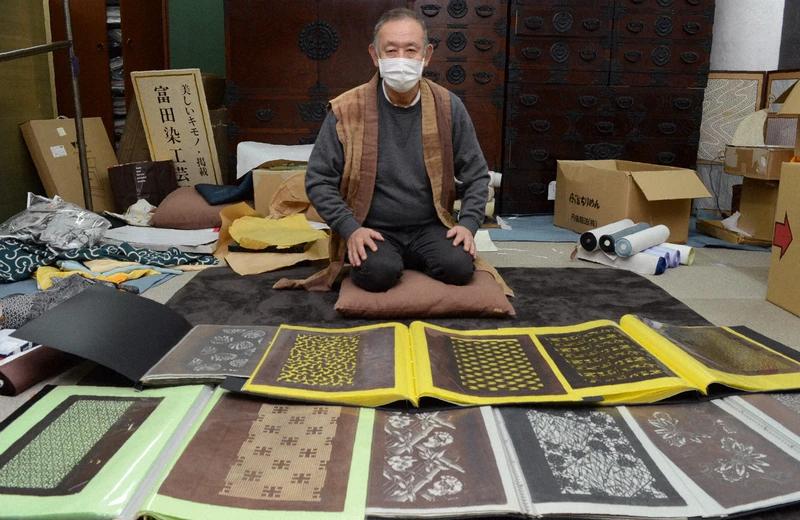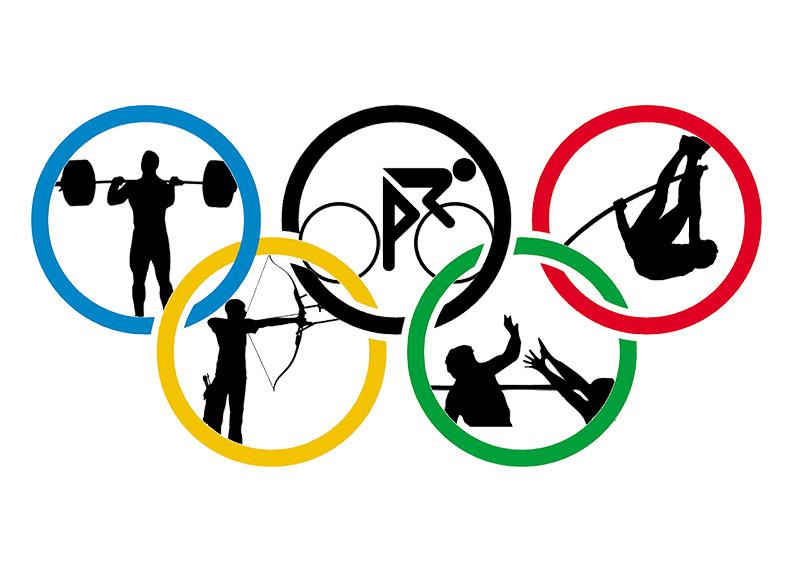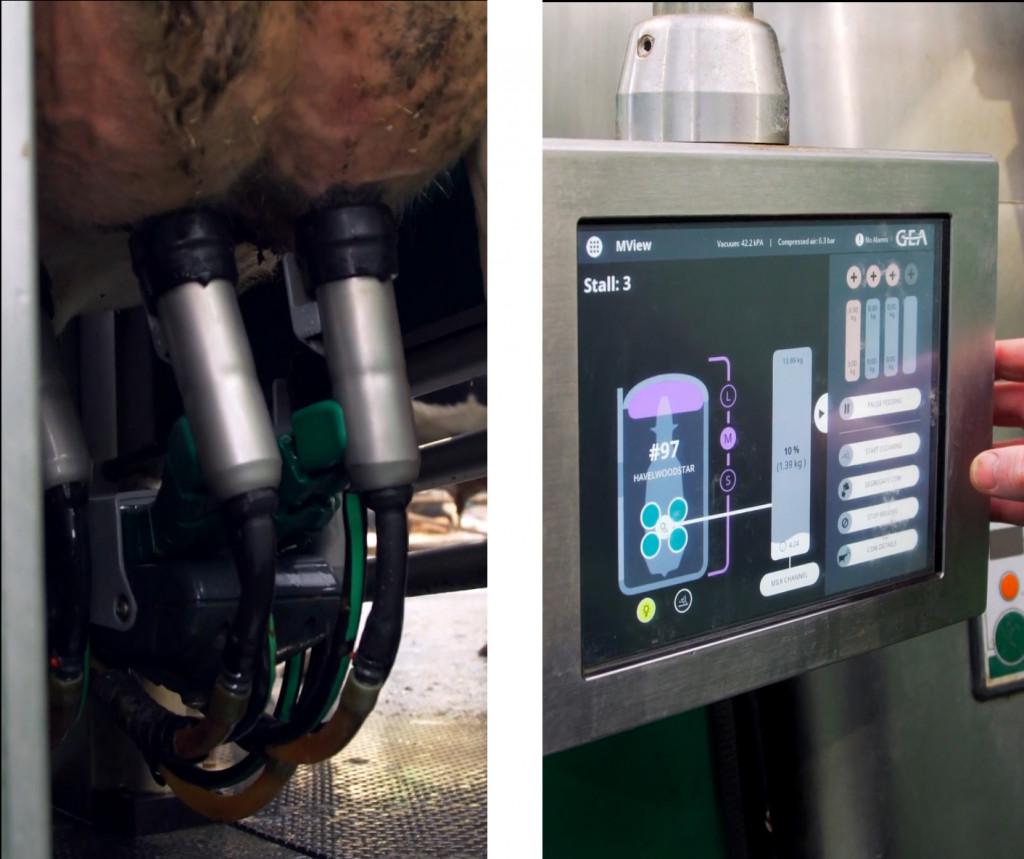[Contribution]
Generalist's struggle for the London Olympics
Hiroyuki Kobayashi (Associate Professor, Department of Comprehensive Medical Care, Mito Community Medical Education Center, Tsukuba University Hospital / Doctor, London Olympic Cycling Team)
The London Olympics, which won the largest number of medals in Japanese history. The daily medal rush made the whole of Japan excited. I will report from behind the scenes the experience of the author who supported me as a team doctor for cycling for two weeks.
What I felt in support of the Japanese cycling team
Yukiya Arashiro, who was active in the Tour de France, and Fumiyuki Beppu, who participated in the Beijing Olympics, participated in the men's individual road race. Beppu complained of his right lower abdominal pain just before the tournament, and although he was initially worried about acute appendicitis, his medical history and abdominal findings revealed diarrhea due to excessive amino acid intake. Reassuring the athletes that "it's okay with an intestinal regulator," he remained in the lead group until the end of the race, leaving a splendid 22nd place result. As a companion doctor, he realized that it was important to distinguish by his medical history and physical examination without relying on examinations.

In addition, Beppu was 24th out of 37 in the individual road time trial, but in Beijing there was a difference of 6 minutes from the top 10 to 1 minute 30 seconds this time, which is different from the world in long-distance events. It was confirmed that the difference in competitiveness was narrowing. We believe that the result of strengthening overseas and the stricter doping that became a problem due to the suspicion of Lance Armstrong are working positively for clean Japan.
In the men's team sprint, Japanese bicycle racers Kazunari Watanabe, Yudai Nitta, and Seiichiro Nakagawa will participate. Although he won 8th place, he could not win the silver medal of the Athens Olympics and the bronze medal of the Beijing Olympics for the third consecutive tournament. At the world championship just before the Olympics (April), he finished 4th with a relaxed run, but this time he seemed to be tense and stiff, and he reaffirmed the importance of mental support (Kouhei Uchimura of gymnastics). Even the fall was probably the subconscious pressure of the Olympics). According to Dr. Takao Kanai, a psychiatrist who is a colleague of the Department of General Medicine at Mito Kyodo Hospital, Chris Hoi, a cycling athlete who won a total of six gold medals and was given the title of "Count" by Her Majesty the Queen, was just before the match. Athletes from other countries breathed more than 20 times a minute, while they breathed 6 times a minute. He believes this is a manifestation of Britain's focus on mental training.
The doctor's job focuses on daily physical condition management of athletes, and makes decisions with reference to resting heart rate, weight, sleep time, sleep quality, subjective symptoms, complexion, performance, and reports from trainers. In addition, since the number of officers is small, it is possible to perform non-medical work, move luggage, perform paperwork such as team reports, prepare drinking water, food and ice, manage schedules, etc., and athletes can demonstrate their best performance. I tried to create an environment.
The secret of the overwhelming strength of the local UK
In Britain, especially cycling is a national sport and is very popular with the people, and the Royal Family and Paul McCartney also came to support. He won eight gold medals only in the cycling competition and showed overwhelming strength in the actual performance.
I was able to hear the secret from Richard Freeman, a doctor on the British team and also a doctor on the Team Sky Bicycle Road Team. He is the same general practitioner as the author and has experience as a team doctor in the English Premier League Bolton. "The support we had for Team Sky at the Tour de France has been applied to the UK team as well," he said. "The secret of strength is that training, recovery, nutrition, supplements, equipment development, mental support, etc. are all shared by a strong organization and surely done." In other words, it can be said that a system that emphasizes sports medicine science and systematically strengthens and supports the team has been achieved.
The British team used new bicycle frames and racing suits like LZR Racer for the Olympics, and all the athletes showed a completely different dimension from the April World Championship. Recently, in the United Kingdom and Australia, post-exercise recovery has been emphasized, and personalized post-exercise nutrition, supplements, and hydration have been carried out. In addition, warm-up pants with batteries were used in production, and measures were taken such as warming the lower limbs by 0.5 ° C and increasing muscle output, but this seems to have meant a psychological operation against the opposing country.
Sports doctor as a generalist
Currently, in Japan, orthopedic surgeons are responsible for about 90% of team doctors in J.League, baseball, and other sports organizations. However, if you accompany the team in a training camp or a game, depending on the competition, the problem of orthopedics is 20 to 30%, and the others are problems in the primary care area, so it is necessary to have a generalist background. The scope of non-specialized medical care provided by specialists largely depends on the background of individual doctors, and it is sometimes difficult to provide the necessary medical care to athletes. In fact, the range of diseases supported by bicycle competition during the London Olympics was 23% for orthopedics (sacral arthritis, lumbar pain) and 50% for other medical systems (bronchitis, enterocolitis, laryngitis, stomatitis, etc.). , Psychiatry (sleep disorder, mental support) 15%, Ophthalmology (conjunctivitis) 4%, Dermatology 4% (eczema), Obstetrics and gynecology 4% (menstrual difficulty).
At the Mito Community Medical Education Center of Tsukuba University Hospital, internal medicine generalists provide medical care for athletes other than orthopedics while tying up with specialists in sports orthopedics, such as medical checks, fever, anemia, bronchial asthma, pollinosis, In addition to medical diseases such as arrhythmia, he is in charge of women's care, doping control, nutrition / conditioning, and mental care. Currently, in addition to supporting the national bicycle team, he is treating players such as Mito HollyHock of soccer J2 and Hitachi High-Tech of the women's basketball W league.
For those who are interested in primary care sports medicine
Many students and doctors like sports and are interested in getting involved in sports in some way. However, at present, Japan does not yet have a qualification system for sports doctors with clinical training like the United States and Australia.
For example, in the United States, there is a sports medicine fellowship course (1 year) after acquiring a family medicine specialist. In the training, he is in charge of supporting professional and university / high school teams, and supports games on weekends while providing medical care at sports clinics, primary care outpatient clinics, and schools on weekdays. In Japan, the establishment of a specialist system after the initial clinical training is about to begin, and it seems that it will take more time for the academic society to certify the specialty of sports doctors in the future. For those who come to our hospital, "It is too early to study only sports medicine immediately after the initial clinical training, so in order to provide high quality medical care as a sports doctor, first of all, studying as a generalist (primary) Care and ER) are necessary to care for top athletes. "
*
In the above, I have described my experience and personal opinion that accompanied the Olympics. In the future, general practitioner-type sports doctors who provide total care for team players will be needed in the region regardless of age or gender, and we hope that they will become widespread in Japan as well.
| Upper left of the photo : Training of the local comedy. Place on the backboard while protecting the patient's cervical spine. Bottom left of the photo : Japanese team bicycle for fixie. There is no brake, and the price is comparable to that of a car. Top right of the photo : Keirin's start. The track is made of pine wood and has a circumference of 250 meters and a maximum slope of 42 degrees. |
| Hiroyuki Kobayashi (center of the photo) Graduated from Defense Medical College in 1990. He studied abroad at the University of California in the United States in 1993 and obtained a family medicine specialist (Resident teaching award). He has been in his current position since 2009 after working at the Self-Defense Forces Health School and the National Defense Medical College General Clinical Department. Together with Professor Yasuharu Tokuda, he will set up a training system for "Ichiro-type general practitioners" with a wide range of defense. Visiting Associate Professor, Faculty of Sport and Health Science, Juntendo University. Professor of Sports Medicine, University of Tsukuba. Cycling Federation Team Doctor (accompanied by the Sydney, Athens, Beijing and London Olympics). Soccer J League Mito HollyHock Team Doctor. The photo is at the London Olympics with Fumiyuki Beppu (left) and Yukiya Arashiro (right). |







